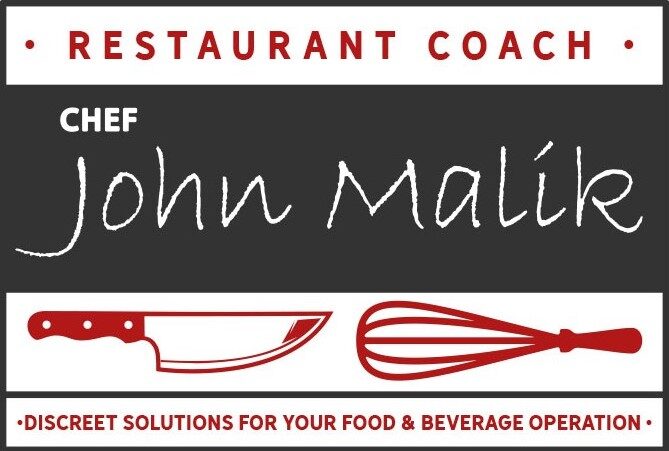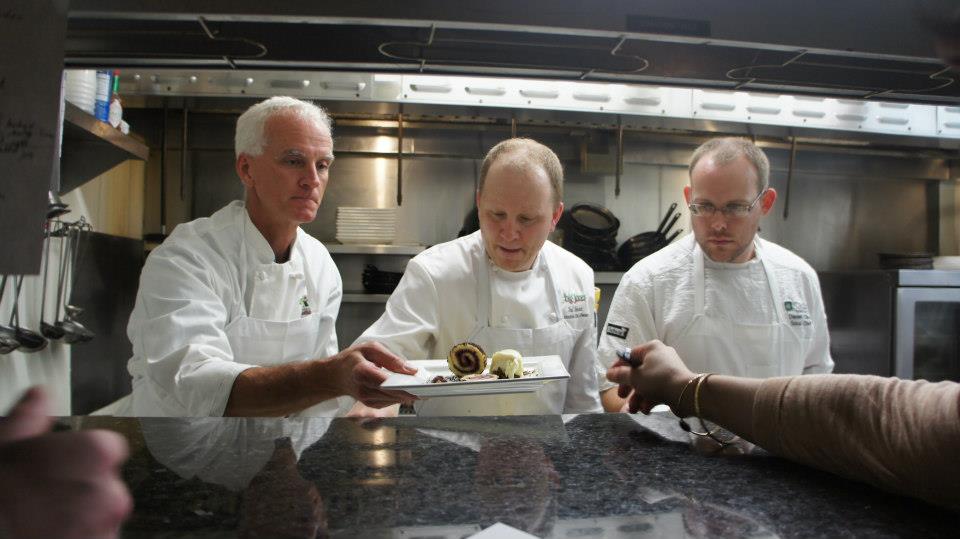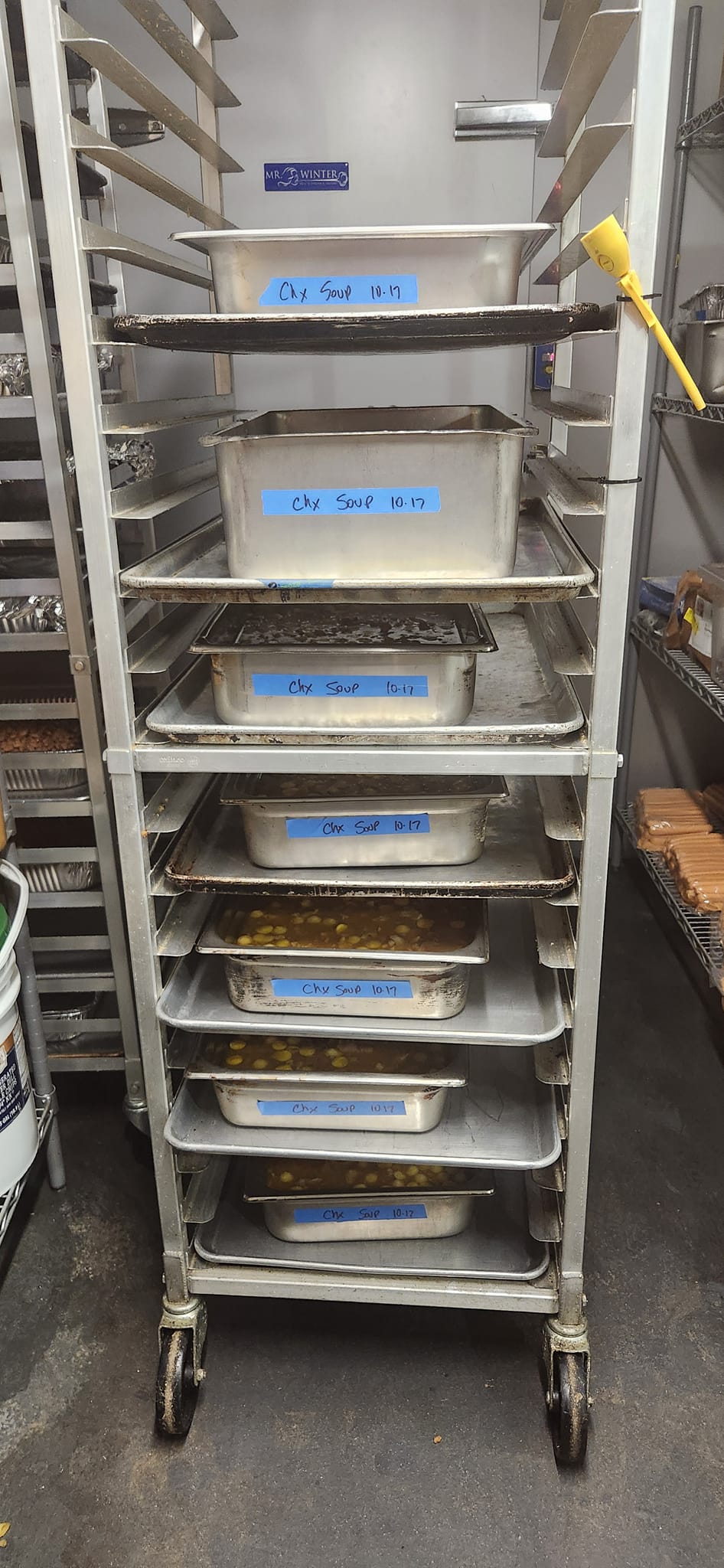From the minute I walked into my first professional kitchen, I knew I was meant to be there. I loved everything about it. The pace, the intensity, all the insane foods that I’d only read about and the impossibly high standards set by a larger than life Parisian-born Chef. You did not question his methods, authority, or technique but you observed, you learned, then emulated. Every day in the kitchen of Christian’s was an immersive experience and every day I learned something new, every day I got better, faster, cleaner, more efficient and more respectful of my Chef, the ingredients and the experience that diners were paying for. And what I found was joyful. Unlike many other occupations, people arrive excited to see you. Who loves going to see their attorney, dentist, or their mechanic? You may love the level of service you get or the job your mechanic performs, but dropping off your car for a day or more isn’t exactly the highlight of your day. I think the world of my attorney and doctor friends and value their abilities immensely but the thought of a professional visit to their office isn’t on my list of weekly highlights.
Aah, but being a professional cook in a sophisticated downtown bistro or an up and coming brasserie on the East side; that’s a different story. Dinner at a new or established restaurant? This is an experience we look forward to, plan our week around, post on Instagram about. And to be able to provide that sort of expectation and experience is a feeling of value and worth that’s tough to put a number on. So how come no one wants to cook anymore?
The Lazy Goat, Fried Green Tomatoes, Firebirds, Diggers BBQ, Adam’s Bistro, Eggs Up Grill, Bacon Brothers, and the list goes on and on. All of these restaurants are looking for cooks. And now as summer rolls to a close and a lot of short term help heads back to school, the skilled labor situation will just get tighter. Is the labor market for the culinary arts so precipitous that Greenville could see another high-profile restaurant such as Breakwater, close its doors, too? Many in the hospitality field are quick to blame the current labor shortage on Greenville’s recent growth spurt but I’m not sure this is the case. In my younger days, when I was running kitchens and cooking, it was no different. New Orleans, Charleston or here in Greenville, there was always a shortage of good cooks, and restaurants were always on the lookout for a solid pair of hands. Why?
Well there’s several reasons but I think the most obvious is that the skills required haven’t evolved much at all. Sure there was a brief flirtation with high-tech machines and molecular gastronomy but for the most part, a professional kitchen still relies on flames, pots, pans, knives, and steel. Those basic pieces of equipment aren’t going away any time soon, either. So while other industries may have evolved and moved forward, professional cooking’s evolution has taken place not in the kitchen but rather in procurement. We all want to know about the local tomatoes, chicken, mushrooms, etc
Also, in the past ten years or so, Greenville has attracted a new crop of high tech manufacturing, marketing, and IT firms that source their own labor force. Positions with these types of firms pay quite well and that can up the cost of living in an urban area like Greenville’s. Naturally there’s going to be entrepreneurs that want to take advantage of a growing customer base but the average chef/cook in the Southeast US makes about $36,000 annual. If you’re a cloud-based IT firm that’s just wrapped its hands around a 50 million-dollar investment, you’ll have no trouble attracting, and paying, top talent. If you’re the local Southern bistro that’d like to feed those folks, well you can’t afford to attract top talent if you’re only offering 13.50 an hour. The real advantage of cooking at a creative or innovative restaurant is not monetary, but rather because the owner or chef provides an avenue to entrepreneurship or promotion.
And that’s the secret that Anthony Gray, Executive Chef and owner at Bacon Brothers, tries to remember and reinforce daily. “If I get a good one, I’ll try to do anything to groom that person to grow with the restaurant. The ones that stay have an appreciation for quality ingredients and hard work, it’s (Bacon Brothers) not an easy kitchen to work in.”
Good cooks aren’t going to move here from Austin, San Francisco, or New York to make 13 or 14 dollars an hour. Those good cooks are going to come from your local labor pool. And even though an ad for a cook may get a dozen applicants, maybe more, the challenge is finding the right set of qualities.
Jeff Kelly, Executive Chef at the Peace Center believes his “biggest challenge is finding people that can produce consistent results. And there’s drive, integrity, passion and they need to have the willingness to put their heads down and learn.”

It’s a natural tendency to label one’s own generation as better than a succeeding generation but Jeff Kelly believes this latest generation has little respect for the traditions of the kitchen. “It’s not like it was when I was coming up. So many of these young cooks think they deserve a (salary) position without paying their dues.” And paying dues means learning how to make a proper Hollandaise, an aromatic veal stock, handmade pasta, or a smooth and creamy veloute’ before you plop grilled local asparagus on a plate with a sprinkle of salt and proclaim it as innovative.
On the other side of town, Chef Brian Province works in Greenville’s health care field and he believes the key to retention is no different. He’ll receive dozens of applications for a single cook’s position, maybe phone interview a quarter of those, then set up one on one interviews only to have a handful even show up. “That’s the worst problem.” His key to retaining cooks? “Your people have to feel needed and have an ownership mentality.
Cooking is a tough, physically demanding job and if one is going to succeed in the culinary arts, one must be willing to give up a lot. Weekends, holidays, birthdays, and healthy knees are all casualties of this business. Yet its rewards are multi-dimensional. And while other industries may succumb to out-sourcing, robotics, and high tech downsizing, a professional cook will never lack for work and with a lot of hard work and diligence, will have the opportunity to make their own way in this industry.

The restaurant business has always been, and always will be challenging. Slim profit margins can get even slimmer when rent, or the cost of that local asparagus goes up. Your favorite chef-driven bistro probably has a profit margin of about five percent so the question of “why not pay better” isn’t an easy option. The restaurants that survive, and thrive will be the ones that do everything just slightly better, including attracting, retaining, and motivating their staff.
And if you enjoy my writing, perhaps you’ll enjoy my novel, Doughnuts for Amy. Published by Winter Goose Publishing early this year.







